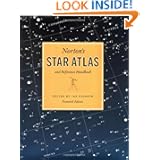-
Welcome! The TrekBBS is the number one place to chat about Star Trek with like-minded fans.
If you are not already a member then please register an account and join in the discussion!
You are using an out of date browser. It may not display this or other websites correctly.
You should upgrade or use an alternative browser.
You should upgrade or use an alternative browser.
Recommend your favorite Science or Technology book.
- Thread starter TerriO
- Start date
Arrghman said:
The Elegent Universe by Brian Greene. Great book on the basics of relativity, quantum mechanics and string theory using little to no math, so it's really accessable.
I haven't read the book, but the documentary was fascinating. It did a good job introducing difficult concepts, like 11 dimensions and membrane universes.
My first favorite too
Thanks for reminding me that I need to bust out Kip Thorne's Black Holes & Time Warps and take another stab at it!
My second favorite!
The New Time Travellers by David Toomey. I always find popsci books a little basic, but on the other hand it's a nice introduction to the theories of time travel that modern physics has come up with.
Plus, with time travel and parallel universes being back in fashion in the world of Trek, it serves as a nice primer on some of the theories behind these things...
Plus, with time travel and parallel universes being back in fashion in the world of Trek, it serves as a nice primer on some of the theories behind these things...
The Universe in a Nutshell by Steven Hawking is a fun read.
I agree with this one and recommend it. Although I seem to recall that one or more of the theories in it are now out of date.
I also recommend How Computers Work by Ron White and Timothy Edward Downs. I was looking for a very beginner computer book for someone, that started with the fundamentals, and this was the best I could find. I think that once you learn the concepts of how they work, it's much easier to start learning how to actually operate them and maintain them.
Bate, Mueller and White's classic text on the Fundamentals of Astrodynamics.
No it's not a pop science book. It's a certainly a goldmine for any aspiring astronomy or aerospace eng. students. I used this as a student but I think it's also good for anyone who is just curious about orbital mechanics.
No it's not a pop science book. It's a certainly a goldmine for any aspiring astronomy or aerospace eng. students. I used this as a student but I think it's also good for anyone who is just curious about orbital mechanics.
R
ring
Guest
A brief history of time......anytime.....

S
suphwed55
Guest
Hi,I am new to this site but will be humble enough to recommend a book on computer networking science and technology- Joint International Conference on Measurement and Modeling of Computer Systems (2006 : Saint Malo, France)
Have a trial on the same.Beleive me it is very very informative.
____________________________________
Have a trial on the same.Beleive me it is very very informative.
____________________________________
Last edited by a moderator:
Parallel Worlds by Michio Kaku really stands out for me (as well as Physics of the Impossible and Hyperspace by him as well), Feynman Lectures on Physics, The Character of Physical Law by Feynman is fantastic; Introduction to Quantum Theory (David Park), Scientists and Engineers, 5th edition, by Serway & Beichner, Black Holes and Time warps by Kip Thorne, Road to Reality (Penrose), The Flying Circus of Physics (Jearl Walker? Sp?), A Short History of Nearly Everything (Bill Bryson), Isaac Newton (James Gleick), The Trouble With Physics (Lee Snolin? Forgot the spelling)......
I also actually liked Universe in a Nutshell. Hawking is a fantastic physicist but perhaps not the greatest science educator. Brief/Briefer History of Time was fantastic but there's lots of disagreement when it comes to Universe in a Nutshell. I thought it was a great, though somewhat misunderstood and/or underappreciated book. I can see where he was going with it but I also admit it was poorly executed.
I also actually liked Universe in a Nutshell. Hawking is a fantastic physicist but perhaps not the greatest science educator. Brief/Briefer History of Time was fantastic but there's lots of disagreement when it comes to Universe in a Nutshell. I thought it was a great, though somewhat misunderstood and/or underappreciated book. I can see where he was going with it but I also admit it was poorly executed.
I recommend 13 Things That Don't Make Sense by Michael Brooks. It's a nice little book that looks at several subjects where the experimental data is at odds with what we know (or think we know) about how things work. For example, the flight paths of the two Pioneer spacecraft launched in the early 70s are deviating from what the laws of gravitation say they should be, and no one knows why.
There are four books which I'm pretty sure I'll never be without...
While I know most of what is covered in them (specially An Introduction to Differential Geometry and Riemannian Geometry), I always feel better having them within reach. And in the cases of Geometry and Topics in Algebra, they hold a lot of knowledge I'd really like to have a better mastery of than I currently possess.
Geometry: A Comprehensive Course by Dan Pedoe
An Introduction to Differential Geometry by T. J. Willmore
Riemannian Geometry by Manfredo P. do Carmo
Topics in Algebra by I. N. Herstein
When I lost my original collection of math books, these were the first books I set out to re-acquire (except Topics in Algebra, which I had with me when I lost the rest) because they cover the aspects of mathematics I find most important.An Introduction to Differential Geometry by T. J. Willmore
Riemannian Geometry by Manfredo P. do Carmo
Topics in Algebra by I. N. Herstein
While I know most of what is covered in them (specially An Introduction to Differential Geometry and Riemannian Geometry), I always feel better having them within reach. And in the cases of Geometry and Topics in Algebra, they hold a lot of knowledge I'd really like to have a better mastery of than I currently possess.
"Rare Earth: Why Complex Life is Uncommon in the Universe", by Peter Ward and Donald E. Brownlee. It certainly shits in the Cheerios of the "ET true believahs", but it's nice to shake up your perceptions, so I'd recommend you give it a look. It's a very impressive piece of work.
X
xmen3
Guest
These are my favourites:
The Fountains of Paradise -by Sir Arthur C Clarke.
2001: A Space Odyssey- by Sir Arthur C Clarke.
2010: Odyssey Two- by Sir Arthur C Clarke.
2061: Odyssey Three- by Sir Arthur C Clarke.
The Fountains of Paradise -by Sir Arthur C Clarke.
2001: A Space Odyssey- by Sir Arthur C Clarke.
2010: Odyssey Two- by Sir Arthur C Clarke.
2061: Odyssey Three- by Sir Arthur C Clarke.
it may be disputable whether experimental archeology would count as a science, but if you're interested in that field, I can wholeheartedly recommend all of Thor Heyerdahl's books. His theories on aquatic migration routes, based on building styles, specifically pyramids, may be overly bold, but at least he proved that with ancient boats these journeys were actually possible.
Also, he's a really good writer, entertaining and well-spoken, so that his books make a thrilling bedtime-read.
Also, he's a really good writer, entertaining and well-spoken, so that his books make a thrilling bedtime-read.
Last edited:
This has already been covered most likely, but The Science of Science fiction is a must:
www.amazon.co.uk/Science-Fiction-Pe...=sr_1_1?s=books&ie=UTF8&qid=1342898266&sr=1-1
www.amazon.com/The-Science-Fiction-Writing/dp/1578860113
http://www.amazon.com/The-Science-Fiction-Predictions-Scientific/dp/1932100482
Sadly the general message is--the cooler a concept is--the less likely it is possible.
www.amazon.co.uk/Science-Fiction-Pe...=sr_1_1?s=books&ie=UTF8&qid=1342898266&sr=1-1
www.amazon.com/The-Science-Fiction-Writing/dp/1578860113
http://www.amazon.com/The-Science-Fiction-Predictions-Scientific/dp/1932100482
Sadly the general message is--the cooler a concept is--the less likely it is possible.
Last edited:

From Dust to Life: The Origin and Evolution of Our Solar System John Chambers (Author), Jacqueline Mitton (Author)
If your interest is in the evolution of the solar system, the planets and life, you should read this. It's excellent and up to date. Be forewarned, you need at least a little science background to understand it, but I would imagine anyone that posts in a science forum on a Star Trek board would have no problem with it. He really details things very well. This has turned out to be a real page turner for me.
$16.17 for the Kindle version, I have no idea what buying the book would cost.
Similar threads
Contest: ENTER
March 2026 Art Challenge - Suggest Your Themes!
- Replies
- 2
- Views
- 323
Contest: ENTER
February 2026 Art Challenge - Suggest Your Themes!
- Replies
- 5
- Views
- 731
- Replies
- 25
- Views
- 2K
- Replies
- 0
- Views
- 4K
If you are not already a member then please register an account and join in the discussion!


